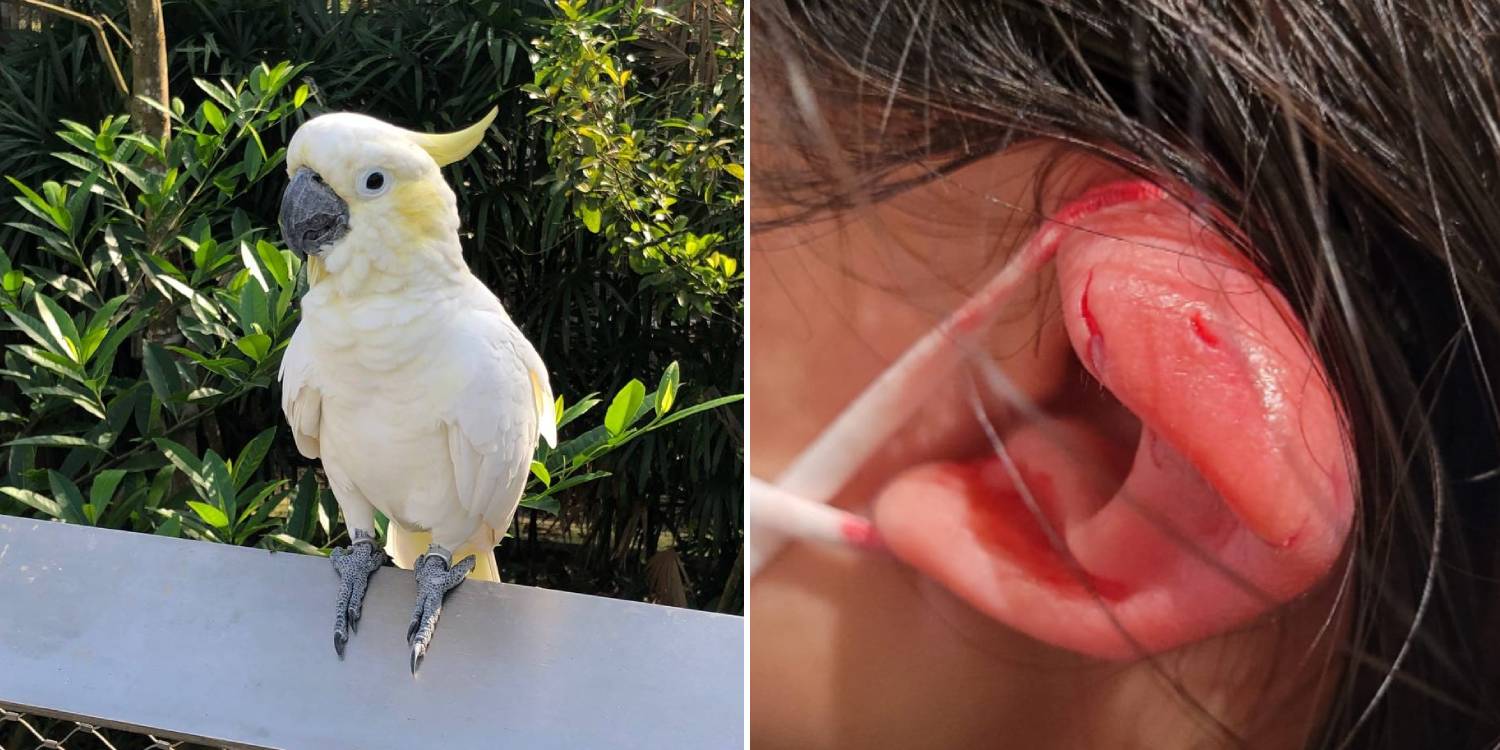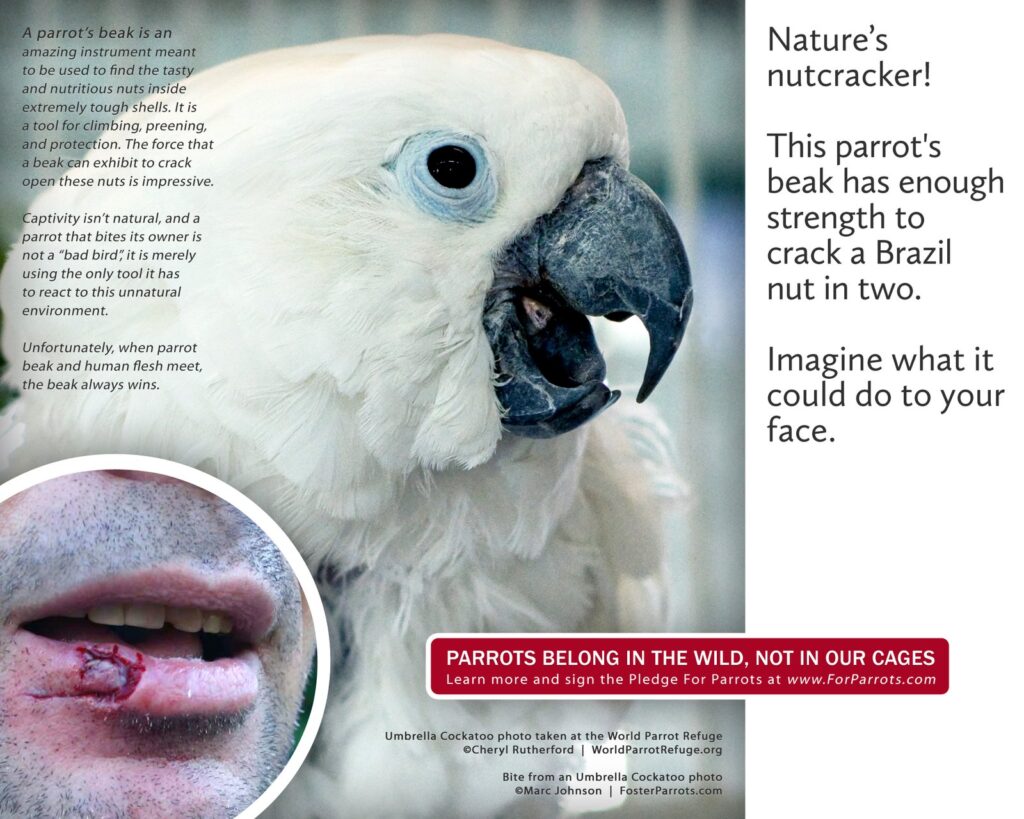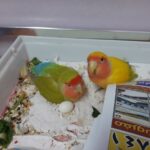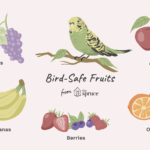Cockatoos can bite, and their bites can be powerful. These birds may bite when they are scared, threatened, or frustrated.
Cockatoos are an intriguing species of bird beloved for their intelligence and charismatic presence. Many enthusiasts seek these feathered friends as pets, drawn by their vivid expressions and social nature. Their ability to form strong bonds with owners comes with a responsibility to understand their behaviors, including biting.
Biting in cockatoos serves as a natural reaction to various stimuli and is a behavior that can be managed with proper training and socialization. Owners must approach their pet cockatoos with patience and consistency to minimize aggressive tendencies and nurture a gentle demeanor. The interactive nature of cockatoos requires owners to remain attentive and responsive to their needs, ensuring these intelligent birds remain both mentally stimulated and emotionally secure within their environment.

Credit: m.youtube.com
The Temperament Of A Cockatoo
Understanding a cockatoo’s temperament is key to a happy life together. These birds are complex and full of character. Let’s dive into what makes a cockatoo’s behavior quite unique.
Playful And Expressive Nature
Cockatoos are known for their vibrant and lively personalities. With a tendency to be affectionate, they often form strong bonds with their owners. These birds love to play and explore, which keeps them energized and entertained.
- Respond well to positive interaction
- Enjoy puzzle toys and games
- Use creativity to express themselves
Potential For Aggressive Behavior
Sometimes, a cockatoo might show signs of aggression. This is often due to stress, lack of attention, or when they’re not properly handled.
| Reasons for Aggression | How to Mitigate |
|---|---|
| Jealousy | Provide equal attention to pets |
| Fear | Approach gently; avoid sudden movements |
| Boredom | Supply new toys; offer playtime |
It’s important to read the signs your cockatoo displays. Regular training sessions can help reduce unwanted behavior. With the right care, cockatoos can be loving companions.
Communication Through Biting
Did you know that cockatoos use biting to talk to us? Yes, they do! Biting is not just an act of aggression from these feathery friends. It’s a complex form of communication. Let’s learn about the signs that lead to a bite and the bird’s body language that goes with it.
Signals Before A Bite
A cockatoo might give you a warning before it decides to bite. Watch for these signals:
- Pinning eyes: When the pupils get very small, be careful.
- Feather position: Raised feathers can signal a stressed bird.
- Beak movements: Opening and closing the beak might mean back off.
Spotting these signals can help prevent a nip or a bite.
Understanding Bird Body Language
It’s like a secret code, and you can crack it! Here’s a simple guide:
| Body Posture | Meaning |
|---|---|
| Stretching Neck | Feeling curious or attentive |
| Low Crouch | Feeling scared or ready to protect itself |
| Flapping Wings | Wanting attention or to show dominance |
Understanding these little clues will help you bond with your cockatoo.
Factors Leading To Biting
Understanding why cockatoos bite is essential for bird owners and enthusiasts. Various factors trigger this behavior. Exploring these can help in preventing and managing biting incidents.
Territorial Instincts
Cockatoos are naturally protective of their space. This instinct may lead to biting:
- New pets or people might be seen as intruders.
- Cages and perches are their personal areas to defend.
Fear And Stress Responses
Birds often bite when scared or stressed. Cockatoos might react with a bite when:
- Loud noises or sudden movements scare them.
- Changes in environment, like re-arranging the room.
- Experiencing new situations or unfamiliar objects.
Health-related Irritability
Just like humans, cockatoos get irritable when not feeling well:
- Illness or pain may cause unexpected biting.
- Regular vet check-ups help in detecting issues early.
- Watching behavior can clue in on health problems.

Credit: mustsharenews.com
Bite Prevention Strategies
Bite Prevention Strategies are essential for cockatoo owners. These smart birds may bite due to fear, stress, or excitement. Learning how to prevent bites ensures a safe and happy relationship with your feathered friend. Explore effective ways to build trust, handle your bird correctly, and enrich its environment to mitigate biting behaviors.
Creating A Trusting Relationship
Trust plays a vital role in preventing bites. Invest time daily to bond with your cockatoo. Speak gently and move slowly around them. Offer treats from your hand to create a positive association. Consistent, patient interaction lays a foundation for mutual trust, reducing the likelihood of biting.
Proper Handling Techniques
Understanding how to handle your cockatoo correctly is key. Always approach your cockatoo calmly. Use the “step-up” command to initiate contact. Avoid sudden movements that may startle them. By setting clear boundaries and handling them regularly, you reinforce safe interactions.
Environment Enrichment
Enriching your cockatoo’s environment reduces stress and boredom, common causes of biting. Include a variety of toys for mental stimulation. Rotate these toys regularly to keep your bird engaged. Ensure they have enough space to play and explore. A happy cockatoo is less likely to bite.
Training To Reduce Biting
Playful yet mischievous, cockatoos can sometimes use their beaks too much, leading to painful bites. Training to Reduce Biting is essential for any cockatoo owner. It turns your feathered pal into a gentle companion. Let’s dive into the methods and consistency needed for training.
Positive Reinforcement Methods
Positive reinforcement rewards good behavior, which helps your cockatoo learn. Every time your bird refrains from biting or interacts gently, offer a treat or praise. This approach uses:
- Favourite treats: Identify snacks your cockatoo loves.
- Verbal praise: Simple words like “Good bird!” can work wonders.
- Physical affection: A gentle head scratch shows approval.
Use a clicker for immediate feedback. Click right when your cockatoo is good, then follow with a treat. This clear signal helps them understand faster.
Consistency In Training
Consistency is key in training. Cockatoos thrive on routine and clear expectations. Here’s what you should do:
- Set daily training sessions at the same time each day.
- Keep commands simple and always the same.
- Involve everyone in the household to maintain training rules.
Remember, inconsistent training confuses your bird. If you let your cockatoo bite sometimes but not others, it won’t learn. Stay patient and positive, and soon the biting will stop!
When Bites Happen
Cockatoos can be loving companions, but like any pet, they might bite. Understanding and responding appropriately to a bite is crucial. It’s natural for owners to seek ways to nurture a trusting relationship and minimize these incidents. Here’s how to manage the situation when bites occur.
First Aid For Bites
If a cockatoo bites you, stay calm and follow these first-aid steps:
- Clean the wound immediately using soap and warm water.
- Apply pressure to stop any bleeding.
- Use an antiseptic cream to prevent infection.
- Cover with a sterile bandage.
- Seek medical advice if the bite is deep or if swelling occurs.
Assessing The Motivation
Look for reasons why your cockatoo might bite:
- Fear or stress: Has something in the environment changed?
- Protecting territory: Are you near their cage or mate?
- Illness or pain: Is the bird acting differently?
Determining the cause helps in preventing future bites.
Avoiding Reinforcement Of Biting
Ensuring a bite doesn’t become a habit is important. Here are some tips:
- Don’t react with loud noises or sudden movements.
- Stay neutral: Avoid punishing or cuddling after a bite.
- Reward good behavior: Use treats and praise.
- Train consistently: Use positive reinforcement techniques.
Preventing future bites means helping your cockatoo learn to trust and not fear.
Understanding Cockatoo Bite Strength
Cockatoos possess a remarkable bite force that demands respect and understanding. They are not just playful birds with pretty feathers. Their beaks can exert significant pressure. It’s essential for bird owners to know this for safe handling. Let’s delve into the anatomy and compare their bite force to get a full picture.
Anatomy Of A Cockatoo’s Beak
A cockatoo’s beak is a powerful tool. It’s made for cracking nuts and foraging. Thinking about the anatomy of a cockatoo’s beak is key to understanding their bite strength.
- Upper mandible: Curved and pointed for tearing.
- Lower mandible: Fits neatly into the upper to exert pressure.
- Jaw muscles: Large and strong to operate the beak like a vice.
Comparing Bite Force
When it comes to bite strength, cockatoos stand out. Their pressure can be surprising.
| Bird Species | Bite Force (PSI) |
|---|---|
| Cockatoo | 350 PSI |
| Macaw | 200 PSI |
| African Grey | 500 PSI |
Cockatoos have a formidable bite for their size, not as high as African Greys but stronger than Macaws. This makes handling them a unique challenge. It’s crucial for pet owners to approach them with care.
Cockatoos As Pets
Many people adore cockatoos for their charm and intelligence. Before taking one into your family, understanding the commitments and responsibilities is crucial. These charismatic birds make unique companions, but are they the right choice for you?
Long-term Commitment
Cockatoos live very long lives, often reaching up to 60 years. Owning a cockatoo means decades of care, attention, and love. Prospective owners must prepare for a lifelong responsibility. Regular veterinary visits and a stable home environment are essential. It’s not just a pet; it’s a commitment for life.
Suitability For Families
These birds often form deep bonds with their owners. They thrive in environments where they receive plenty of interaction and socialization. But they might not suit homes with small children or other pets. Loud noises and sudden movements can startle cockatoos. Close supervision during interactions ensures everyone’s safety.
Legal And Ethical Considerations
Before adopting a cockatoo, verify legal ownership regulations in your area. Some species are protected, and trade or ownership may be restricted. Also, consider the ethical implications. Always choose reputable breeders or rescue shelters. This supports animal welfare and combats illegal trading.

Credit: threebirdsandacloud.wordpress.com
Conclusion
Understanding cockatoo behavior is essential to prevent bites. These intelligent birds require attention and patience. Establishing a bond respects their need for social interaction. Educate yourself on their signals to avoid unwanted incidents. With care, a cockatoo can be a delightful companion.
Ryan Everhart is a passionate bird enthusiast and blogger, primarily writing on his website, Avian Whispers. His journey into the world of bird blogging began with a deep interest in parrots, a species that captivated his attention for their intelligence and social behavior. Over time, his content expanded to cover a broader range of bird species, offering insights into bird behavior, care, habitats, and conservation.
Ryan is dedicated to educating his audience, which includes both new bird owners and seasoned enthusiasts. His writing is filled with personal experiences, expert knowledge, and practical advice on bird care. Through Avian Whispers, he aims to foster a deeper appreciation for birds, emphasizing their role in nature and the joys of having them as pets.
Starting with articles focused on parrots, Ryan’s work now encompasses a diverse range of topics such as feeding, training, habitat enrichment, and bird health. His love for birds extends beyond parrots, diving into various avian species. His informative and heartfelt writing reflects his commitment to the well-being of birds and the desire to help others connect with these creatures.
As a growing voice in the bird blogging community, Ryan strives to provide a platform where bird lovers can learn, share experiences, and connect over a shared passion for avian life. His blogs are not only educational but also serve as a reminder of the importance of protecting and nurturing the bond between humans and birds.




